Human Neuroscience Faculty
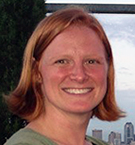 Charlotte Boettiger directs the Cognition and Addiction Biopsychology Lab (the CABLAB). The CABLAB focuses on improving the understanding of the neurobiology of substance use disorders (SUDs) by identifying and characterizing neurocognitive biomarkers and intermediate phenotypes. Techniques include combining discrete cognitive tasks in human subjects with neuroimaging, pharmacology, physiological measures, genetics, and epigenetics. Dr. Boettiger accepts new graduate students through the Behavioral and Integrative Neuroscience Program.
Charlotte Boettiger directs the Cognition and Addiction Biopsychology Lab (the CABLAB). The CABLAB focuses on improving the understanding of the neurobiology of substance use disorders (SUDs) by identifying and characterizing neurocognitive biomarkers and intermediate phenotypes. Techniques include combining discrete cognitive tasks in human subjects with neuroimaging, pharmacology, physiological measures, genetics, and epigenetics. Dr. Boettiger accepts new graduate students through the Behavioral and Integrative Neuroscience Program.
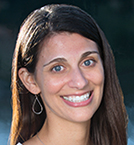 Jessica Cohen directs the Cohen Lab. The Cohen Lab investigates how functional brain networks interact and reconfigure when confronted with changing cognitive demands, when experiencing transformations across development, and when facing disruptions in healthy functioning due to disease. The lab is also interested in how this neural flexibility contributes to flexibility in control and the ability to learn, as well as the consequences of dysfunction in this flexibility. We use behavioral, neuroimaging, and clinical approaches taken from neuroscience, psychology, and mathematics to address our research questions. Dr. Cohen accepts new graduate students through the Cognitive Psychology Program and the Developmental Psychology Program.
Jessica Cohen directs the Cohen Lab. The Cohen Lab investigates how functional brain networks interact and reconfigure when confronted with changing cognitive demands, when experiencing transformations across development, and when facing disruptions in healthy functioning due to disease. The lab is also interested in how this neural flexibility contributes to flexibility in control and the ability to learn, as well as the consequences of dysfunction in this flexibility. We use behavioral, neuroimaging, and clinical approaches taken from neuroscience, psychology, and mathematics to address our research questions. Dr. Cohen accepts new graduate students through the Cognitive Psychology Program and the Developmental Psychology Program.
 Stacey Daughters directs the Biobehavioral Research on Addiction and Emotion lab (the BRANE lab). The BRANE lab focuses on identifying the neurobiological and behavioral mechanisms underlying addiction (e.g., cortisol response to stress, distress tolerance, reward processing), and translating this knowledge into development of effective interventions (e.g., behavioral activation for substance use). The lab conducts both experimental and treatment outcome research grounded in a transdisciplinary approach (fMRI, psychophysiology, psychoneuroendocrinology). Dr. Daughters accepts new graduate students through the Clinical Psychology Program
Stacey Daughters directs the Biobehavioral Research on Addiction and Emotion lab (the BRANE lab). The BRANE lab focuses on identifying the neurobiological and behavioral mechanisms underlying addiction (e.g., cortisol response to stress, distress tolerance, reward processing), and translating this knowledge into development of effective interventions (e.g., behavioral activation for substance use). The lab conducts both experimental and treatment outcome research grounded in a transdisciplinary approach (fMRI, psychophysiology, psychoneuroendocrinology). Dr. Daughters accepts new graduate students through the Clinical Psychology Program
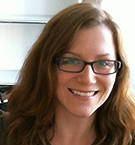 Katie Gates’ lab uses time series analysis, structural equation modeling, Fourier analysis, and graph theory. Within these domains they develop, test, and disseminate analytic methods for use with intensive longitudinal data such as psychophysiological (e.g., fMRI & electrocardiogram), daily diary, and dyadic interaction (e.g., mother-infant). Dr. Gates accepts new graduate students through the Quantitative Psychology Program.
Katie Gates’ lab uses time series analysis, structural equation modeling, Fourier analysis, and graph theory. Within these domains they develop, test, and disseminate analytic methods for use with intensive longitudinal data such as psychophysiological (e.g., fMRI & electrocardiogram), daily diary, and dyadic interaction (e.g., mother-infant). Dr. Gates accepts new graduate students through the Quantitative Psychology Program.
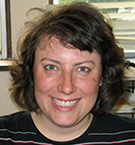 Kelly Giovanello directs the Cognitive Neuroscience of Memory Lab. The lab combines behavioral, patient-based, and brain imaging approaches to investigate how people learn new information and remember their past experiences. The Cognitive Neuroscience of Memory Lab is interested in exploring the cognitive and neural processes mediating memory in young adults and specifying how these processes change with healthy aging and neurodegenerative disease. Dr. Giovanello accepts new graduate students through the Cognitive Psychology Program.
Kelly Giovanello directs the Cognitive Neuroscience of Memory Lab. The lab combines behavioral, patient-based, and brain imaging approaches to investigate how people learn new information and remember their past experiences. The Cognitive Neuroscience of Memory Lab is interested in exploring the cognitive and neural processes mediating memory in young adults and specifying how these processes change with healthy aging and neurodegenerative disease. Dr. Giovanello accepts new graduate students through the Cognitive Psychology Program.
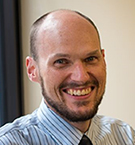 Michael Hallquist is the Group Leader of the Human Neuroimaging Group and the director of the Developmental Personality Neuroscience Lab. His laboratory synthesizes personality science, cognitive neuroscience, and computational psychiatry to better understand the normative and dysfunctional development of personality and self-regulation. He is especially interested in decision processes and neurocomputational systems that underlie personality pathology and suicidal behavior. Dr. Hallquist accepts new graduate students through the Clinical Psychology Program and the Quantitative Psychology Program.
Michael Hallquist is the Group Leader of the Human Neuroimaging Group and the director of the Developmental Personality Neuroscience Lab. His laboratory synthesizes personality science, cognitive neuroscience, and computational psychiatry to better understand the normative and dysfunctional development of personality and self-regulation. He is especially interested in decision processes and neurocomputational systems that underlie personality pathology and suicidal behavior. Dr. Hallquist accepts new graduate students through the Clinical Psychology Program and the Quantitative Psychology Program.
 Joe Hopfinger’s lab studies the cognitive processes and neural mechanisms of attention, distraction, and brain plasticity. We use a multi-methodological approach, including functional MRI, scalp-recorded EEG/ERP measures, and transcranial alternating current stimulation (tACS) to elucidate the spatio-temporal brain dynamics that underlie human attention abilities. Our lab also investigates differences in the ability to disengage from distracting events, which may contribute to dysfunctional attentional control, and we are currently investigating the brain plasticity that may be associated with online cognitive training. Dr. Hopfinger accepts new graduate students through the Cognitive Psychology Program.
Joe Hopfinger’s lab studies the cognitive processes and neural mechanisms of attention, distraction, and brain plasticity. We use a multi-methodological approach, including functional MRI, scalp-recorded EEG/ERP measures, and transcranial alternating current stimulation (tACS) to elucidate the spatio-temporal brain dynamics that underlie human attention abilities. Our lab also investigates differences in the ability to disengage from distracting events, which may contribute to dysfunctional attentional control, and we are currently investigating the brain plasticity that may be associated with online cognitive training. Dr. Hopfinger accepts new graduate students through the Cognitive Psychology Program.
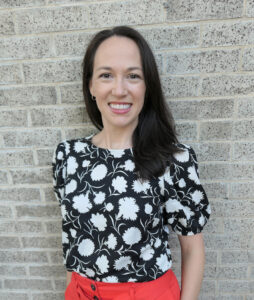 Kristen Lindquist’s Carolina Affective Science Lab (CASL) studies the psychological and neural processes that give rise to the vast array of emotions that people experience in their own body and see in others throughout daily life. The CASL’s research demonstrates that emotional experiences and perceptions are the products of more basic psychological phenomena such as body changes, knowledge about emotion concepts, and attention, which map on to distributed brain networks. To address questions about emotion, the CASL uses diverse methods from neuroimaging, psychophysiology, and social cognition. Dr. Lindquist accepts new graduate students through the Social Psychology Program and the Developmental Psychology Program.
Kristen Lindquist’s Carolina Affective Science Lab (CASL) studies the psychological and neural processes that give rise to the vast array of emotions that people experience in their own body and see in others throughout daily life. The CASL’s research demonstrates that emotional experiences and perceptions are the products of more basic psychological phenomena such as body changes, knowledge about emotion concepts, and attention, which map on to distributed brain networks. To address questions about emotion, the CASL uses diverse methods from neuroimaging, psychophysiology, and social cognition. Dr. Lindquist accepts new graduate students through the Social Psychology Program and the Developmental Psychology Program.
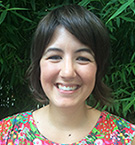 Keely Muscatell’s Social Neuroscience and Health Lab focuses on understanding links between social experiences and health outcomes. More specifically, we explore how the brain responds to different types of stress (social evaluation, racial discrimination, economic inequality, low social status, loneliness) and how such stressors induce physiological changes that are important for health. Tackling this complex issue requires interdisciplinary science, so the lab uses a variety of tools from neuroimaging (primarily fMRI), experimental social psychology, psychoneuroimmunology, and psychopharmacology. Dr. Muscatell accepts new graduate students through the Social Psychology Program.
Keely Muscatell’s Social Neuroscience and Health Lab focuses on understanding links between social experiences and health outcomes. More specifically, we explore how the brain responds to different types of stress (social evaluation, racial discrimination, economic inequality, low social status, loneliness) and how such stressors induce physiological changes that are important for health. Tackling this complex issue requires interdisciplinary science, so the lab uses a variety of tools from neuroimaging (primarily fMRI), experimental social psychology, psychoneuroimmunology, and psychopharmacology. Dr. Muscatell accepts new graduate students through the Social Psychology Program.
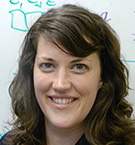 Margaret Sheridan’s Child Imaging Research on Cognition and Life Experiences lab studies the neural underpinnings of the development of cognitive control across childhood with a focus on understanding how and why disruption in this process results in psychopathology. This problem is approached in two ways; first, by studying atypical development, in particular children with attention-deficit/hyperactivity disorder (ADHD). Second, by studying the effect of experience on brain development, specifically, the effect of adversity on prefrontal cortex function in childhood. While the lab is focused on using neuroscience to solve real world problems such as creating safer, healthier environments for children growing up in poverty, they pursue these goals using the tools of cognitive neuroscience. Dr. Sheridan accepts new graduate students through the Clinical Psychology Program and the Developmental Psychology Program.
Margaret Sheridan’s Child Imaging Research on Cognition and Life Experiences lab studies the neural underpinnings of the development of cognitive control across childhood with a focus on understanding how and why disruption in this process results in psychopathology. This problem is approached in two ways; first, by studying atypical development, in particular children with attention-deficit/hyperactivity disorder (ADHD). Second, by studying the effect of experience on brain development, specifically, the effect of adversity on prefrontal cortex function in childhood. While the lab is focused on using neuroscience to solve real world problems such as creating safer, healthier environments for children growing up in poverty, they pursue these goals using the tools of cognitive neuroscience. Dr. Sheridan accepts new graduate students through the Clinical Psychology Program and the Developmental Psychology Program.
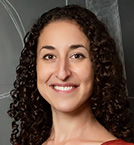 Eva Telzer directs the Developmental Social Neuroscience Lab. The DSN Lab uses multimethod tools including longitudinal assessments, fMRI, daily diaries, and diurnal cortisol to examine how social and cultural processes shape brain development. Our lab focuses on both antisocial (e.g., risk taking and substance use) and prosocial (e.g., helping and empathy) behaviors from childhood to adulthood, with a focus on adolescence as a particularly sensitive and flexible phase of brain development. We seek to examine how family and peer relationships shape the long-term psychological well-being of youth via changes in brain function and structure. Dr. Telzer accepts new graduate students through the Developmental Psychology Program.
Eva Telzer directs the Developmental Social Neuroscience Lab. The DSN Lab uses multimethod tools including longitudinal assessments, fMRI, daily diaries, and diurnal cortisol to examine how social and cultural processes shape brain development. Our lab focuses on both antisocial (e.g., risk taking and substance use) and prosocial (e.g., helping and empathy) behaviors from childhood to adulthood, with a focus on adolescence as a particularly sensitive and flexible phase of brain development. We seek to examine how family and peer relationships shape the long-term psychological well-being of youth via changes in brain function and structure. Dr. Telzer accepts new graduate students through the Developmental Psychology Program.
